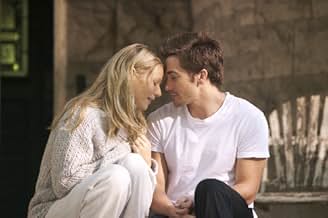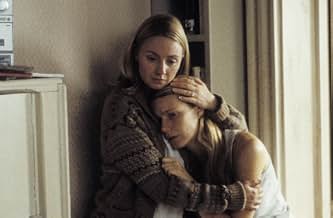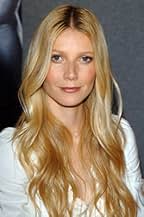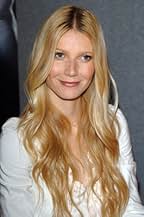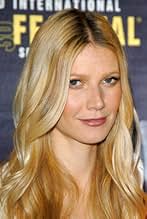Die kürzlich verstorbene Tochter eines brillanten, aber psychisch gestörten Mathematikers versucht, ihr mögliches Erbe in den Griff zu bekommen: seinen Wahnsinn.Die kürzlich verstorbene Tochter eines brillanten, aber psychisch gestörten Mathematikers versucht, ihr mögliches Erbe in den Griff zu bekommen: seinen Wahnsinn.Die kürzlich verstorbene Tochter eines brillanten, aber psychisch gestörten Mathematikers versucht, ihr mögliches Erbe in den Griff zu bekommen: seinen Wahnsinn.
- Auszeichnungen
- 4 Gewinne & 6 Nominierungen insgesamt
- Limo Driver
- (as Tobiacz Daszkiewicz)
- University Friend
- (as C Gerod Harris)
- American Student
- (Nicht genannt)
- Wake Guest
- (Nicht genannt)
Empfohlene Bewertungen
I only have two quibbles. One, there was not enough mathematics in the movie OR the play. Everyone has studied advanced math, so why not challenge the audience a little more and let us in on what the proof is actually about. It is kind of like watching a movie about a musician and not letting the audience hear any of the music! Two, it is not believable that in a crucial scene towards the end of the movie, that neither Catherine and especially the more materialistic Claire would not care what ultimately happens to the proof, especially when being told of its possible value.
Aside from these flaws, if you are looking for intelligent fare and a break from mindless action films and the mostly unfunny comedies of the past summer, you owe it to yourself to see this film. The theater I saw it in was almost empty, so I fear it is not doing too well. Remember that every ticket you buy is a vote for more of that kind of film being made. Let's hear it for more stimulating and mature films like this one!
This is a compelling portrayal of the mathematical obsession. It's not as flashy or romantic as cinema tries to dress up math sometimes. It is a bit sad. Paltrow does great work following Hopkins. She shows that she's not simply a romantic lead. It's a compelling character study.
In the end, this film is all about Gwyneth Paltrow.
She is on screen at least 80% of this film. Her character dances between mourning, anger, remorse, confusion, fear, vulnerability, sadness, and just a little bit of love. There are very dramatic changes in emotion from moment to moment, and Paltrow pulls it off brilliantly.
Sir Anthony Hopkins role, while relatively small, is crucial to the film. His performance was good, but not great. But it didn't really matter, as Proof is all about Paltrow. Hope Davis and Jake Gyllenhaal also gave solid performances, but their as with Hopkin's role were really nothing more than support Paltrow.
The biggest disappointment for me was the almost total lack of any 'real' mathematics. For a film that revolves around brilliant mathematical proofs, there's an almost painful scarcity of and real math in the film. There are shots of seemingly random equations scrawled across paper or a blackboard, and the odd conversation making reference to some known mathematical law or theorem, but I would have liked more.
IF you want a happy film, go see something else. If you want a mindless film, go see something else. If you want a typical love story, go see something else. If you want an intelligent well written and presented story of substance involving a a character experiencing a roller-coaster of emotions, Proof may be for you.
This is story about mathematics, actually about mathematicians which is much, much better. "Beautiful Mind" was repellent in a few ways; one was in the cartoonish way mathematical imagination was shown. Another was the way history was bent away from a truly interesting story to be palatable for film audiences. Math at that level requires the juice of life that he took in large gulps from both sexes. And he was such a glutton for mindbending adventure that he bent his own mind. I do not believe he suffered from some genetic disease, nor did he.
This movie repairs some of that. Its clear I think that the Nash phenomenon is at work here: minds powerful enough to break themselves, possibly leaving some mathematical residue, possibly not. The focus on primes may be accidental, but it is apt. As time goes on, they become increasing rarer and infinitely more fascinating, all apparently random but with some hint of unseen order. They don't interest me so much...
In fact, selecting films to build into your life (perspectives and stories to live) is a lot like choosing the types of problems to work on and how. The proof of being in a way is that the selection is made deliberately, based on your weaknesses, not your strengths. Only weak mathematicians and souls work on problems they understand. No life comes from the undaunting. No magic ever comes alone or from peace.
Hopkins isn't obnoxious here. Its clear that he is acting and that the lines are those of a stage character. But he doesn't grandstand; he's gently broken and there are some sweet moments (only two, but central) where he seems to completely have second-guessed where his daughter is going and lucidly makes key suggestions. Hopkins understood those moments and gives then some significance.
Ted's Evaluation -- 3 of 3: Worth watching.
Mr. Auburn and Rebecca Miller, a movie director, herself, took the task of adapting "Proof" for the screen. The result, directed by John Madden, opens the play in cinematic terms, no small undertaking in presenting the movie to a wider audience who might not be interested in science, and much less in the advanced math that plays an important role in the proceedings.
If you haven't seen the film, please stop reading here.
Catherine, the 27 year old, at the center of the film, is a woman who has stayed behind to take care of her aging father, a man much esteemed in academic circles, who is suffering from, perhaps, a neurological illness that is killing him slowly. Catherine has, in a way, sacrificed her life in order to see that Robert spends his last days at home instead of at an institution.
The death of the father brings Claire home. This woman, who lives in New York, wants to get rid of everything connected with her father. She even has made plans for Catherine to move from Chicago to be near each other in New York, where things are much better. To complicate things, Harold, the nerdy math student, finds a hidden notebook that might contain a discovery that will revolutionize math. The only problem is the proof might not have been the dead man's own creation.
"Proof" works as a film because of Mr. Madden's direction. We are kept involved in what is going on because we have been won by Catherine, the wounded woman trying to live her life without having to tend to a sick man. Catherine love for math, in a way, makes her realize her place is in the same institution where her father made mathematical discoveries as she will be following his steps.
Gwyneth Paltrow makes an excellent Catherine, a role she had played on the London stage. Ms. Paltrow is a welcome presence in the movie because of the intelligence she projects when working with a good director like John Madden. In fact, it has been a while since we saw this actress in a film.
Hope Davis, another excellent actress, plays Claire, the materialistic sister who has arrived and who wants to transform the frumpy Catherine and mold her to her own taste. Ms. Davis has accustomed us to expect a valuable contribution to any film in which she plays. As Claire, she clearly understand who this character she is portraying really is.
Anthony Hopkins has only a few good moments on the screen. Jake Gyllenhaal's character Harold is not as effective as Ben Shenkman's was on the stage. In fact, Mr. Gyllenhaal, with his dark good looks, seems to be someone who would not be interested in math at all.
"Proof" is an immensely rewarding film thanks to what John Madden's vision.
Wusstest du schon
- WissenswertesAccording to the clues of Hal, played by Jake Gyllenhaal, the proof can be the proof of Riemann hypothesis. He says "a very important proof, of a mathematical theorem about prime numbers, which mathematicians are trying to prove; it's historic; you can publish it, give press conferences; all newspapers in the world will talk to the person who have found it." It's one of the Millennium Problems.
- PatzerThe daughter talks about how the father was looking for a message from aliens in the Dewey decimal call numbers on the books from the University of Chicago library. The University of Chicago uses Library of Congress call numbers, which begin with letters, not numbers.
- Zitate
Catherine: [Reading Robert's Notebook] "Let X equal the quantity of all quantities of X. Let X equal the cold. It is cold in December. The months of cold equal November through February. There are four months of cold, and four of heat, leaving four months of indeterminate temperature. In February it snows. In March the Lake is a lake of ice. In September the students come back and the bookstores are full. Let X equal the month of full bookstores. The number of books approaches infinity as the number of months of cold approaches four. I will never be as cold now as I will in the future. The future of cold is infinite. The future of heat is the future of cold. The bookstores are infinite and so are never full except in September..."
- VerbindungenFeatured in The 63rd Annual Golden Globe Awards 2006 (2006)
- SoundtracksEl chocha loca
(2002)
Written by Claudio Quattrocchi
Performed by Loca
Published by Big Tiger Music (BMI)
Courtesy of Lovecat Records
By Arrangement with Ocean Park Music Group
Top-Auswahl
- How long is Proof?Powered by Alexa
Details
- Erscheinungsdatum
- Herkunftsland
- Offizieller Standort
- Sprache
- Auch bekannt als
- Der Beweis - Liebe zwischen Genie und Wahnsinn
- Drehorte
- Produktionsfirmen
- Weitere beteiligte Unternehmen bei IMDbPro anzeigen
Box Office
- Budget
- 20.000.000 $ (geschätzt)
- Bruttoertrag in den USA und Kanada
- 7.535.331 $
- Eröffnungswochenende in den USA und in Kanada
- 193.840 $
- 18. Sept. 2005
- Weltweiter Bruttoertrag
- 14.189.860 $
- Laufzeit
- 1 Std. 40 Min.(100 min)
- Farbe
- Sound-Mix
- Seitenverhältnis
- 2.35 : 1



